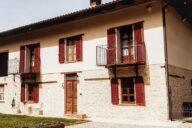Moving to Turin
Relocation tips & other practical info for your move to Turin, Italy
Are you moving to Turin and the Piedmont region to experience a bit of that famous Italian ‘Dolce Vita’ for yourselves? Did you meet the love of your life? Did you decide on a life change? Or is your company relocating you on a temporary basis? Whatever your reason for relocating to Italy, there are certain snippets of need-to-know information that will make the transition so much smoother and less stressful. Relocating abroad is enough of a challenge in itself without having to trawl through site after site of confusing and conflicting details…
Documents
Documents are a source of national pride in Italy. To have them, means that you have a clear, officially authorised place in Italian society. Once you are sorted out with all your appropriate documents you will feel a great sense of pride and relief in having gone through what can be a frustrating and exhausting process and what has probably also started to feel like a full-time job. So, come prepared. Bring photocopies of every available document you can think of including your birth certificate, marriage certificate, passport, driving licence, visa, school and university certificates or diplomas and anything else you can think of because you can be sure that if you don’t think of it, the official at the desk will.
- Note that EU citizens are not required to apply for a Permesso di Soggiorno or Carta di Soggiorno. However, EU citizens are required to have a Codice Fiscale and Carta d’identita if they plan to work and reside here. Even to rent an apartment you will need to produce a Codice Fiscale.
The basic documents needed to stay in Italy are:
- Permesso di Soggiorno (Permit to Stay). Without this document non-EU citizens cannot stay in Italy for longer than a tourist visa would allow and you definitely would not be able to work legally. In order to qualify for this document you should already have a job lined up with a valid employer or an invitation to study at an Italian school or university before you enter the country. The document should be valid for the length of your stay in Italy. Check the expiry date carefully as you may need/want to renew your permit and if you wait for the permit to expire first, you will have missed your chance. You are recommended to start the renewal process about 2 months before which means that you would be best to start enquiries 3 months before to be on the safe side. Rules are strict.
- Carta di Soggiorno. This is similar to the Permesso di Soggiorno but with this, you can stay in Italy indefinitely. However, the contradiction here is that it may be indefinite, but you still have to have it renewed every 10 years. If your passport number changes in the meantime (ie: your old one ran out and you got a new one) then you are also obliged to inform the Questura (immigration office) of your new number.
- In Turin, the Questura is in Corso Verona, 4. Not the nicest of places to spend a morning; you will have to be patient as it can get very crowded. As you enter, you take a ticket for the service you need and then wait your turn. Staff are generally quite pleasant and helpful even if they can be a bit brusque. After all, documents are a serious business so it is considered appropriate to conduct proceedings in a serious manner. http://questure.poliziadistato.it/Torino/articolo-6-602-1782-1.htm
- Immigration offices in smaller towns and villages in Piedmont are much less crowded, and there is a slightly more congenial atmosphere as to be expected in out of town areas.
- Codice Fiscale (Tax code). A codice fiscale is similar to an NI number in the UK or social security number in the USA. It is essential to get this if you are planning to live and work in Italy, as you will need it for every official document that runs past you: work contracts, tax return, car insurance, medical card, to open a bank account etc. It is fairly simple to get one. . Take your Permesso di Soggiorno (for Non-EU citizens) and passport to the local tax office and you can usually get the Codice Fiscale (CF) issued there and then.
- The main Turin tax office is in Corso Bolzano, 30
http://www1.agenziaentrate.gov.it/english/
- Partita Iva (VAT number).This is a status you may find suitable if you are working freelance. If you start your own business, you will be obliged to have a Partita Iva (PI). To open one is free and a fairly simple process although queues can be long. You will need a passport and codice fiscale (tax code). Despite being easy to open, this is not a decision to take lightly.
- Before opening a PI, you should make sure that you have a significant period of guaranteed work with enough hours to keep you afloat. And that your employer is going to be paying you for the work you have done on a regular basis. You will be paying VAT up front based on a rough calculation of your earnings.
- Be aware that once you issue an invoice for work done, the tax authorities consider this as paid so if your employer doesn’t pay you for the next 6 months or up to a year then you may find yourself in financial difficulties as you will already have paid a hefty tax bill on those ‘earnings’.
- Many people find a trusted accountant to do their accounts for them. This cost also has to be taken into consideration. However, you can also go along to a CAF (Centro di Assistenza Fiscale) office. Each district in the city of Turin has at least one CAF. These offices are run by volunteers and will help you with any fiscal, social security and syndicate issues and questions. They will also help you to do your annual tax return (730 or Modello Unico) for a reasonable fee.
- Carta d’identita (identity card). If you are resident in Italy, you will need an identity card as you will be required to show this on numerous occasions: to enter company offices, paying by credit card, at the hospital, at the bank…Go along to your local ‘circoscrizione’and you will be given a form to fill in. The ‘circoscrizione’ is a local branch of the central records office. The central records office is called Anagrafe). You can obtain your Carta d’identita either by pre-booking an appointment or you can go in any time during office hours.
- To book a slot (only a few are available per day) to renew your Carta d’identita you need to send an email to: prenotazioni.anagrafe@comune.torino.it. *You must include your name, surname, date of birth, address, expiry date of your current document and your telephone number, plus the name of the office you prefer to go to pick up your new card.
- Bookings are limited and you can only pick up the electronic version of the card from the central ‘Anagrafe’. Bookings for the electronic Carta d’identita can also be made via the TorinoFacile service: https://servizi.torinofacile.it/
- TorinoFacile is a web-based service offered by Città di Torino for a range of citizen related services which can be found online.
- The Anagrafe (Central Records Office) in Turin is in via della Consolata, 23
- The staff at the central ‘Anagrafe’ in Turin are helpful and polite and have a well-organised system.
- Certain bureaucratic procedures will require the issuing of one or more of these certificates, for example, to apply to get married in Turin you will need to apply for a Certificato Stato di Residenza, Stato di Famiglia and Stato Libero. Be aware that they ‘last’ for 3 months only. The queue to make your request may be long or not but the certificates will be issued there and then.
- Here you can apply for and renew your Carta d’identita, register births, deaths, marriages and divorces and obtain copies of official certificates you may need such as Certificato Stato di Residenza, Stato di Familglia, Stato Civile, Stato Libero and Certificato di Matrimonio.
Opening a bank account in Italy
To open a bank account you are required to show your Permesso di Soggiorno (for non-EU citizens) or Certificato di Residenza (you can get this at the central ‘Anagrafe’ or ‘circoscrizione’), your Codice Fiscale, proof of regular employment and your passport.
Medical Information for living in Italy
General Practitioners: You will be able to choose a doctor from a list in your local Azienda Sanitaria Locale (ASL). This is a local clinic where you can book appointments for blood tests, have some minor procedures done and select a doctor in your area. In order to be eligible to have a doctor on the Italian ‘Servizio Sanitario Nazionale’ you need to have proof of regular employment (for all citizens). Without this, you risk not being able to register with a GP. You may have lived here for some time, be married to an Italian etc, etc but if your card runs out and you don’t have a job, you risk not being given a doctor or being given one for just a 3 month or 6 month period.
However, if you are experiencing a medical emergency you should call 118 for an ambulance. However, if you don’t have a Codice Fiscale or Carta d’identita (or if they copy the numbers down wrong!) you may find yourself with a bill for the call out a few months down the line. You can turn up at the Pronto Soccorso (A & E/Emergency Room) unit of any local hospital and you will be seen. According to the severity of your medical problem, you will be given a colour: bianco, verde, giallo, rosso (white, green, yellow, red) with ‘rosso’ being the most serious case. So, if you are given ‘bianco’ you will wait longer. Italy also uses a ‘ticket’ system whereby you will pay an affordable amount based on the service you have received. This is to be paid at a designated ‘ATM’ inside the hospital either before you pick up results after treatment or prior to treatment. Another solution could be to go private.
Private doctors in Italy are way cheaper than in the USA, for example. The quality of service and care is high although it is always best to get a good recommendation from a friend you trust and not just pick randomly. If you can afford to go to a private doctor, you are also able to pass through the system more quickly if you do have a medical issue to deal with.
Dentists in Italy are expensive and work privately. It is always highly recommended to find a suitable dentist via trusted recommendation rather than randomly picking one from the listings online or in the ‘Pagine Gialle’ (Yellow Pages). Most importantly use your common sense when treatments are recommended to you and consider getting a 2nd or even 3rd opinion.
Pharmacies are very well-stocked, and some in Turin are architecturally stunning too, such as Regia Farmacia, which used to supply meds to the Royal House of Savoy, in via xx Settembre. For most ‘illnesses’ you will need a doctor’s prescription from your GP, for example, for antibiotics; but for minor ailments such as cold and flus, over the counter remedies are sold. Herbal remedies are also widely sold in the city in pharmacies and specialist shops.
Renting an apartment in Turin
It is worth noting the fact that estate agents/realtors charge 1-2 months rent as non-refundable commission so it is always best and much cheaper to deal directly with the owner when possible. Apartments that are for rent through an estate agent/realtor will have the company logo clearly visible on the ‘Affittasi’ (for rent) sign that you will see on the side of buildings around town. When the ‘Affittasi’ sign has a plain, usually orange, background and simply states the owner’s mobile number it is safe to say you will be dealing directly with the owner.
An alternative to searching on your own for an apartment is to use a relocation service, which can take the stress out of the whole process – for a fee, of course. This may just be worth the expense since they can help you with apartment/house hunting and other things such as opening bank accounts.
Useful websites to find Apartments in Turin and Italy
General information about moving to Italy
http://italyproject365.com/moving-to-italy/
http://www.theexpathub.com/guides/italy/moving-to-italy/
Emergency phone numbers in Italy
Carabinieri: 112
Polizia: 113
Ambulanza: 118
Vigili: 115




